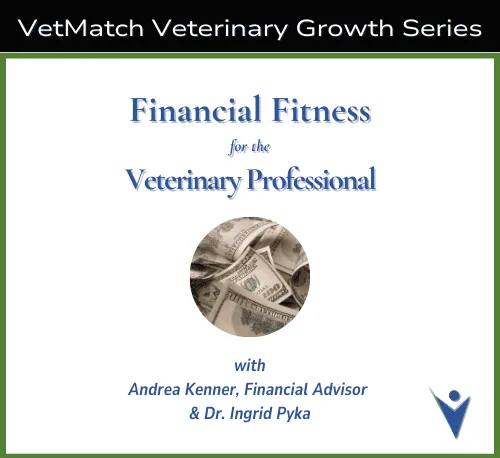
Recently, Dr. Ingrid Pyka of VetMatch sat down with Dr. Beth Neuman, a Regional Head Mentor at the National Veterinary Associates (NVA), one of the world’s largest veterinary and pet care service companies, to learn more about successful mentorship programs. Mentors have become critical to helping vets establish productive and profitable careers in today’s veterinary environments. Whether you are a recent graduate or a seasoned DVM, a veterinary mentorship program could make all the difference to veterinary professionals like you.
Veterinary Mentorship Programs are Helping New DVM’s Successfully Transition Into Practices
“Mentorship is the sharing of gifts, ideas, and resources in a mutually beneficial way to ensure the success and development of the individual.” – Beth Neuman, DVM
Veterinary graduates readily choose hospitals for mentorship even before location and compensation1 according to the American Veterinary Medical Association (AVMA). For those of you unsure about finding the right practice, knowing you have a quality mentor from the beginning will greatly improve your experience as you settle into your new role. Drs. Pyka and Neuman share: Key elements to a successful transition into the field include finding the right cultural fit, understanding the medical nuances as well as the big picture of patient care, and navigating administrative processes of the veterinary organization. Each is markedly more navigable given the right guidance.
What are Vet Mentorship Programs?
There is academia where we learn by lesson. Then we have veterinary mentorship programs which are designed to give graduates (and others) the training and support they need to adapt to clinical practice, i.e., implementation. Having access to someone that can provide additional support and insights from the very beginning is critical. “Access to” is important as Dr. Neuman points out. She shares how some of her mentees request weekly connections while others appreciate simply knowing, when a challenging case or scenario unfolds, they can reach out for that second set of eyes and know-how. Having support per your individual skillset and needs allows for greater growth and independence in the long run.
You will also benefit from having a structured support system that outlines goals and mile-markers as you achieve them. The more the entire team (doctors, technicians, customer service and leadership staff) is invested in your success, the better the experience is for all.
As regional NVA mentor, Dr. Neuman has found multifaceted platforms that offer different learning styles to their new graduate hires are most effective. Not all veterinary practices have an established mentorship program in place, yet they can still provide incredible guidance as you adjust and learn. There is a growing number of online mentorship networks developing too. You can reach out to local veterinary support agencies like VetMatch for guidance in selecting the mentorship program that is best for you.
What Do Good Vet Mentors Do?
Mentors can tackle many different aspects of veterinary practice. In addition to the traditional streamlining for effective medical services, appropriate diagnostic and treatment options, consider additional guidance with:
- Settling into a clinic or hospital’s culture
- Transitioning from student to independently practicing doctor
- Negotiating contracts and compensation
- Choosing and using best choice of new vs “old” drugs
- Navigating patients (and clients!) with financial restrictions
- Sustaining your work-life balance: getting out on time, finishing medical records, etc.
- Building productive relationships with the practice manager and other colleagues
- Effective scheduling and staying on track
Remember, mentors answer questions and provide support to not only the doctors but also technicians, customer service representatives, practice managers, and any other team members who need them.
Perhaps you are fortunate to have several mentors, however, for best learning and continuity, Dr. Neuman suggests it is best for one person to be your primary mentor. Make sure you have weekly or biweekly meetings to check in, discuss how things are going and the challenges you are facing – even to just confirm everything is running smoothly.
Mentorship is a two-way street: Your mentor may not realize when you are struggling. Ask your mentor for help as you need. Conversely, avoid relying too much on your mentor. We encourage you to grow your confidence by doing your own research as well. Ultimately, trust your knowledge and skillsets as you gain more experience each day. You likely already know much more than you realize.
Create A Personalized Training Plan
Mentors should have a training plan and help you partner with a practitioner in your first week. Together, you will review a checklist of expected tasks and how to complete them correctly. More formal programs are designed for you to initially shadow your mentor only. Benefits may include reducing the stress of getting started in your new role and offering time to ask questions and gradually adapt. Then as you are encouraged to participate in the procedures, your confidence will strengthen, eventually leading you to perform independently.
Be a part of the planning. The more you understand the intended growth pathway and contribute to its success, the greater the outcome.
Tips for the Successful Mentee
In every industry, we begin by discovering just how much we don’t know yet. Our education provides basic solutions for situations we may encounter, but until we get hands-on experience, we may have significant knowledge gaps that can undermine our confidence – even make you question your career choice. Having a mentor helps you grow in your role more easily, avoiding unnecessary mistakes that can frustrate you. Don’t give up. You got this!
Dr. Neuman offers a few more suggestions for successful mentorships:
- Your mentor is there for you: Use your mentor as a valuable information resource when other work colleagues don’t have time. No matter where you are with a case, if people around you are too busy to answer questions, call or text your mentor right away. They are there for you.
- Be humble and transparent: Overconfidence as well as lack of confidence can mask insecurity and hurt your career. No one is expected to have all the answers. We are all continually learning. When personal dynamics come into play, they can make situations more complicated than they need to be. Mentors can help with personal growth as well.
- It’s a partnership: When possible, choose with a mentor you enjoy working with. Finding a different mentor is perfectly acceptable if you don’t feel comfortable with their medical expertise, style of communication, or have a personality conflict. Not everyone thinks alike, and no one should take different approaches personally.
- This is about YOU: Reach out to your mentor if your schedule becomes overwhelming and aspects of your personal life suffer as a result. Mental health is an issue in fast-paced environments, and they can be a resource to find ways to relieve your stress and redirect your efforts.
Remember that life is about ongoing learning while gathering unique perspectives, listening to and respecting your colleagues. Mentorship will contribute to a path of experience and wisdom in veterinary medicine and sustaining the passion for animals that likely brought you to this career.
VetCHAT on Mentorship with Drs Ingrid and Beth: Check out Part II of this series for another perspective on Mentorship. Catch the full video or audio version with even more insights on this topic.

